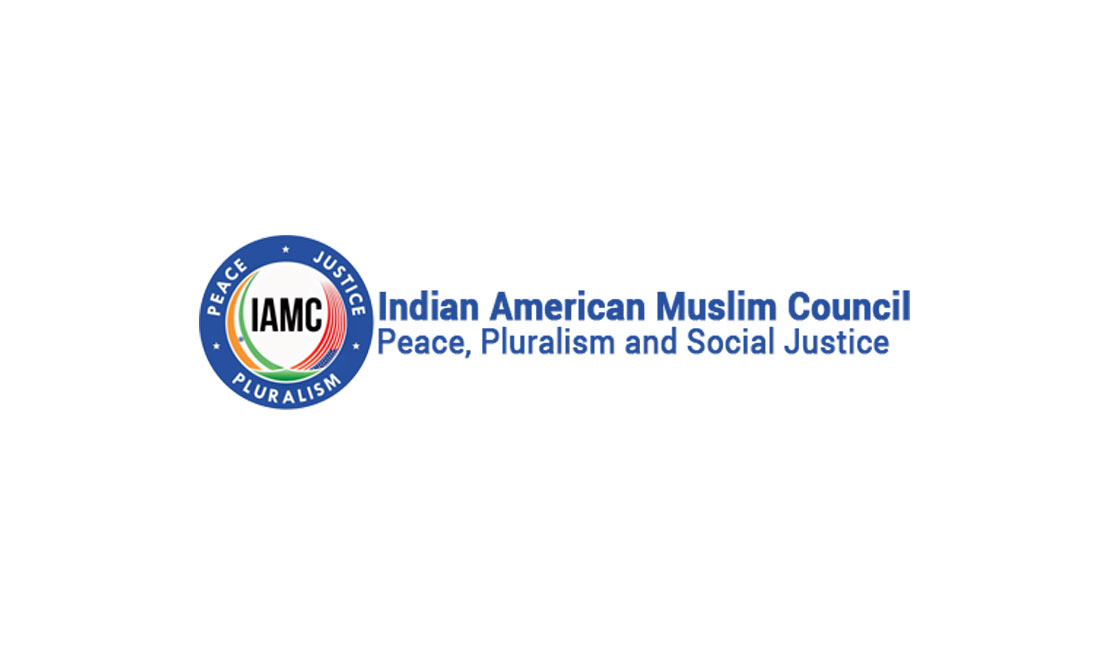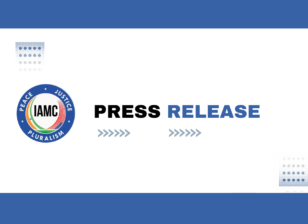IMC-USA’s 2nd Annual Convention a milestone in the quest for communal harmony
India Symposium draws attendance by the hundreds
Chicago, IL, August 9th 2004. The second annual convention of Indian Muslim Council-USA, held on August 7th 2004, was dubbed by both speakers and delegates as a major landmark in the quest for communal harmony among the Indian Diaspora.
Over twenty five speakers representing a diverse and impressive array of experts, intellectuals of secular persuasion and prominent representatives of all major Indian religious communities held groundbreaking discussions on important contemporary issues with special emphasis on the role of Muslims in India’s past, present and future. The symposium was held at the Sheraton Hotel and was well attended.
Speaking in the final session of the day long event, Dr. Shaik Ubaid, President of IMC-USA highlighted his organization’s vision of building a better India and a safer world by promoting pluralism and marginalizing hateful ideologies such as Hindutva-fascism in Indian society, and exposing Hindutva infiltration of US power centers. He highlighted IMC-USA’s strategy of working with other religious and ethnic communities as well as with secular organizations, human rights and developmental groups. He called for the formation of a ‘coalition of the informed’ to strengthen pluralism and secular democracy in India to guarantee its economic growth, regional stability and world peace.
Lord Adam Patel of Blackburn, the keynote speaker and the patron of Council of Indian Muslims in UK declared that he was, "absolutely delighted to be addressing the IMC-USA convention." He highlighted the British Muslims successful strategy towards economic and political empowerment and advised the Indian Muslims living in the US to emulate it by getting involved in the struggle for social justice, economic welfare and mainstream political work.
Earlier in the banquet session, Dr. Omar Khalidi detailed the process in which the economic status of the Indian Muslims was undermined to an extent that the Muslim community in India were now worse off than all other communities. He suggested a strategy to reverse the trend and said that reservations in jobs and education will have to play a part in the strategy. Dr. Kannan Srinivasan described how the Hindutva groups had collaborated with the British occupiers in India and how they worked actively towards the partition of India.
Mr. M.K.Rahman, Secretary General of IMC-USA, inaugurated the convention and the delegates were welcomed to Chicago by Mr. Ghulam Rasul Mansuri of the Gujarati Muslim Association of Chicago. Mrs. Sonia Gandhi, President of India’s Congress Party; Rod Blagojevich, Governor of Illinois; Senator Peter G. Fitzgerald of Illinois; Mr. Richard M. Daley, Mayor of Chicago; Mr. V. P. Singh, former Prime Minister of India; and Arun Kumar, the Consul General of India were among the dignitaries who sent congratulatory messages to IMC-USA.
In the session on ‘Politics and Policy Making’, Dr. Muqtedar Khan explained why a pluralistic India is in economic and geopolitical interests of the US. John Prabhudoss informed the audience on how the Hindutva groups are working in Washington DC to increase their influence, a point later emphasized by Asim Ghafoor, a Washington lobbyist. Dr. Satinath Choudhry provided an analysis of the recent Indian elections where Hindutva-fascists were narrowly defeated. He opined that a system of proportionate representation was the needed to strengthen India’s democracy.
Dr. Patrick Haithcox of Amnesty International and Dr. Javeed Akhtar of Human Rights Watch, Chicago addressed the session on Human Rights. Dr. Kamala Visweswaran described how the Gujarat pogrom of 2002 was planned and executed by the Hindu ultra-nationalists and the importance of bringing the perpetrators of massacres, mass rapes and ethnic cleansing to justice as a deterrent to prevent future genocides.
Dr. K.P.Singh, Acharya Shrikumar Poddar, Rajinder Singh Mago, Raju Rajgopal, Sapna Gupta, George Abraham, Dr. Hari Sharma and Mr. M.A.Khan addressed the coalition building session. The leaders of Dalit, Hindu, Sikh, Christian and Muslim groups as well as those of coalitions such as Promise of India, South Asian Progressive Action Collective, NRIs for a Secular and Harmonious India, Building Bridges and South Asian Network for Secularism and Democracy gave their perspective on forming a broad based and effective coalition to build a better India.
Mrs. Nishrin Husain and Dr. Lise Mckean chaired the session on Women’s issues and described ways in which women can assume a leading role in combating religious hatred. They pointed out that women are always the worst victims of pogroms and genocide.
The convention also held screenings of documentary films as well as an auction of cricket bats signed by Cricket icon Irfan Pathan. The money from the auction would be sent to the charity of choice of Irfan Pathan.
The two new initiatives of IMC-USA, the focused sessions on Indian Muslim NGOs and Muslim businesses were well attended and praised. Mr. Manzoor Ghori of IMRC and Mr. Kaleem Kawaja of AIM were among the speakers at the NGO session. The other speakers were Mr. Quadir Husain Khan (IMEFNA), Mr. Ghulam Rasul Mansuri (GMAA), Dr. Abidullah Gazi (Iqra Foundation), Mr. Abdussamed Patel (IMESG) and Quaid Saifee. Manzoor Ghori described the IMRC’s efforts to build a Muslim university in Jehangirabad, UP where a Journalism college is being planned. The NGO representatives were all ears for Jumana Qamruddin a
World Bank specialist who described the various options of getting funded by the World Bank.
Among the highlights of the convention were the presentations of IMC-USA’s annual awards by Mrs. Ehsan Jafri, Mr. Raju Rajgopal and Mr. Manzoor Ghori in the fields of communal harmony, humanitarian work, journalism, and education and for defending India’s interests.
As with the last year’s convention, delegates came in early and participated in the daylong events with passionate enthusiasm. When asked, most of them pointed out to the participation by the diverse religious groups and the emphasis on coalition building and educational and economic empowerment as the most inspiring part of the convention. They were all praise for Rasheed Ahmed, the IMC-USA vice President and Convention Chairman, and the volunteer team led by Ameena Waheed.
A detailed report of the convention by Khalid Azam along with photographs is available on the IMC-USA website.
Contact:
Rasheed Ahmed
IMC-USA Vice President and Convention Chair
E-mail: rasheed@imc-usa.org
Phone: 630-926-2881
Web: http://www.imc-usa.org/convention2004


